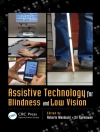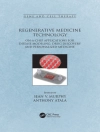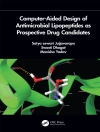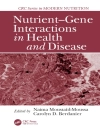The rapid social change in the East Asia has brought great research attention on the family, education and political impacts. The growth trajectory of the next generation is exposed to an entirely different context owing to the dual effects of traditional and modern values as well as practices. This book provides an overall picture of the developmental trajectory of Taiwanese youth as a typical example in the region. The time frame is set from early adolescence (13years old) to young adulthood (22yeard old). Individual psychological well-being in its broad definition will be used as the outcome indicator to reflect significant developmental processes during this important transitional life course. Benefitted from the rare panel datasets conducted from 2000-2009, this book has two major focuses: one is to explore the interplay among family, school and community with regard to their influence on the individual growth patterns; the other is to highlight the potential constraint and/or strength of the prevailing social norms and values shared among East Asian societies. To be specific, different chapters will describe and analyze the life chances and growth patterns among youth with different social capitals (including family SES, educational achievement, rural-urban residence, etc.). Their short-term versus long-term outcome, as indicated by various psychological well-being variables (e.g., depressive symptoms, deviant or problem behaviors, happiness, edutional performance), will allow us to delineate the particular structural context that individual East Asian youth encounters and to offer constructive suggestions on family interaction, educational strategy as well as health related policies based on the scientific evidence. This book incorporates comparative reports from other East Asian societies, and from youth panel studies of Australia and the U.S.. The experience of their counter-part in the advanced societies will contribute to readers’ understandingof the particular social situation that East Asian youth is embedded in the growth process. In addition, comparative perspective will enable the reader to contemplate on the potential future development of the affluent generation in the region. Since changing social structure occurred in the last few decades in the East Asia has suffered inadequate investigation in the realm of family, education and community, this book provides timely information to fill up the gap. Analyses of the valuable dataset from early adolescents to young adults will attract those who are interested in family researches, in youth studies, in panel data analyses, as well as in the social development in Taiwan and in East Asia.
Inhaltsverzeichnis
F oreword – Frank F. Furstenberg, Ph.D.- Introduction to t he Psychological Well-Being of East Asian Youth: Transition from Early Adolescence to Young Adulthood – Chin-Chun Yi.- Part I. The Family Context .- The Concept of Guan in the Chinese Parent-child Relationship – Ming- Y eh Wu.- Growing Up in Single-Parent Families: An Illustration from Taiwanese Families – En-Ling Pan and Kuei-Hsiu Lin.- Family Relationship Quality and Its Psychological Effects among Taiwanese Adolescents – Yuh-Huey Jou.- Part II . The School Context .- Deviant Peers and Delinquency: The Influence of Classroom Context – Chyi-In Wu and Man-Kit Lei.- Exploring the Antecedents and Effects of Structural Holes in Teenagers’ Friendship Networks – Zong-Rong Lee, Chyi-In Wu and Yu-Ting Huang.- Academic Competition and Cram Schooling – Ying-Hwa Chang.- Part III . Entering into Adulthood .- The Developmental Outcome of Taiwanese Youth: Effects of Educational Tracking during Adolescence – Chin- C hun Yi, Gang- H ua Fan and Ming- Y i Chang.- Working, Schooling and Psychological Wellbeing: Evidence from Longitudinal Data for Taiwanese Youth – Fung-Mey Huang and Yu-Ning Chien.- Premarital Sexual Permissiveness among Taiwanese Youth – Chi Chiao and Chin-Chun Yi.- When Young Adults Leave Home: Dependency or Autonomy? – Lang-Wen Huang.- The Effects of Self-Esteem on Adolescent Delinquency: Is the Relationship Linear? – Shu -P ing Tzeng and Chin-Chun Yi.- Part IV . East Asian Additions – Academic achievement-oriented society and its relationship to the psychological well-being of Korean adolescents – Sun-Young Ahn and Hye-Jeong Baek.- Social Capital and Psychosocial Adjustment of Migrant Children in China: The Role of Children’s Personal Agency – Qiao -B ing Wu and Lawrence A. Palinkas .- Subjective Well-being of the Post-80s Generation in Hong Kong: Implications for Social and Political Stability – Chung – Yan Ip and Xiao -G ang Wu.
Über den Autor
Chin-Chun Yi is a research fellow at the Institute of Sociology, Academia Sinica, Taiwan and teaches a graduate seminar at the Department of Sociology, National Taiwan University. She received her Sociology degrees of B.A. from National Taiwan University, M.A. from University of Wisconsin-Milwaukee, and Ph.D. from the University of Minnesota (1981). Dr. Yi’s recent research projects include Family Change and Female’s Domestic Status in Three Chinese Societies (1994-2002), The Intergenerational Transmission of Value of Children in Taiwan (2004-2007), Taiwan Youth Project: The Interplay of Family, School and Community (2000-2008) where she serves as the principal investigator and leads teams composed of researchers of different ranks. Chin-Chun Yi has been an active member of the ISA since 1990, and has served in the board of Committee on Family Research (RC06) from 1992-2006 (the vice president 2002-2006). Dr. Yi organized several successful International Conferences on family (1993 and 2003 for RC06) and on youth studies (2004, 2008, 2009). She also serves in the editorial board as well as the guest editor for International Sociology, Journal of Comparative Family Studies, Journal of Family Issues, Current Sociology and others. In addition to her academic work, Dr. Yi was appointed the Commissioner and honorary advisor for Taiwan Provincial Government from 1994-1998 when she initiated and established the child protection program in Taiwan. Over her career, Chin-Chun Yi has actively participated in professional services in domestic as well as in Asian academic institutes. She is frequently invited to give advice to Ministry of Education, Ministry of Interior and several NGOs in Taiwan.












